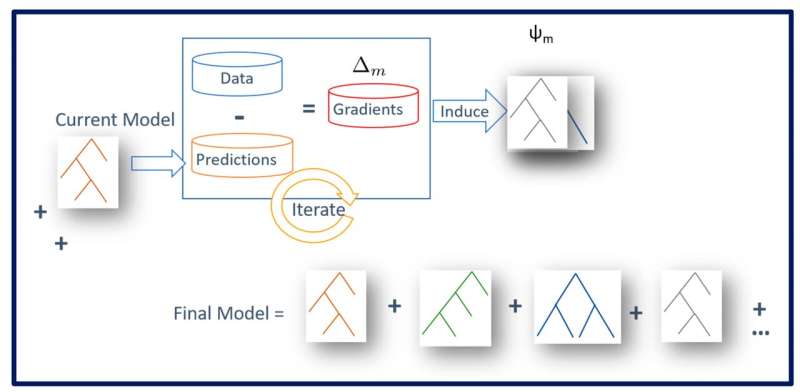This article has been reviewed according to Science X's editorial process and policies. Editors have highlighted the following attributes while ensuring the content's credibility:
fact-checked
peer-reviewed publication
trusted source
proofread
AI tool may predict cardiac arrests in pediatric patients

University of Texas at Dallas researchers have developed an artificial intelligence tool that could predict the risk of cardiac arrest in children hospitalized in cardiac intensive care units.
The technology is the latest work from the Statistical Artificial Intelligence and Relational Learning Group, a UT Dallas research lab where experts develop AI to assist health care providers. The researchers aim to provide tools to help doctors evaluate and monitor individual patients' risks for a variety of conditions, including gestational diabetes and adverse drug interactions.
In a study published online April 6 in the Journal of Clinical Medicine, the UTD computer scientists collaborated with pediatric cardiology and critical care researchers from UT Southwestern Medical Center and the University of Washington.
The team examined the electronic health records (EHR) of 160 pediatric patients who had a cardiac arrest during their admission to the cardiac ICU at Children's Health in Dallas between 2010 and 2019, as well as data from a control group of 711 patients. The goal was to determine which indicators recorded over a 24-hour period could predict a cardiac arrest in the subsequent 24 hours, said Dr. Sriraam Natarajan, professor of computer science in the Erik Jonsson School of Engineering and Computer Science.
Using 11 vital-sign and laboratory variables that were collected from the EHR, combined with historical training/testing sets, the team successfully created a machine-learning predictive algorithm to predict cardiac arrest in children one hour before the cardiac arrest, Natarajan said.
"Our goal is to assist physicians to prevent cardiac arrests. If we save children's lives, that would be amazing progress," Natarajan said.
As they reviewed the 11 key variables, the researchers found that ineffective tissue perfusion—lack of oxygenated blood flow to areas of the body—was a major predictor. The finding tracked with the results of the researchers' statistical analysis of the data, demonstrating that their algorithm is correct. The next step in their research is to test the algorithm on larger data sets to determine whether it applies to broader pediatric populations.
Dr. Michael Skinner, one of the study's authors, is a retired UT Southwestern pediatric surgeon who enrolled at UT Dallas as a computer science doctoral student five years ago to learn how to develop the type of technology he wished he had as a physician. As a computer science researcher, he brings the advantage of decades of clinical experience.
"What we're working on is clinical decision support," Skinner said. "With critically ill patients, you'd like the machine to be able to integrate all the data to give you a warning if there's something that is predictive of a problem."
Last year, Natarajan co-wrote a study published in JAMA Network Open that found the risk of gestational diabetes increases significantly for individuals who are at high risk for Type 2 diabetes and who have low levels of physical activity. The findings suggest that physical activity early in pregnancy can reduce gestational diabetes risk.
Natarajan, who directs UTD's Center for Machine Learning, emphasized the importance of incorporating the knowledge of clinicians and other experts with data and technology to predict health outcomes and to solve health care problems.
"AI can help mankind, but humans are in control," Natarajan said. "Humans are the ones teaching the AI systems."
Dr. Priscilla Yu, assistant professor of pediatrics, was corresponding author of the Journal of Clinical Medicine study, and Dr. Lakshmi Raman, professor of pediatrics, was the senior author, both at UT Southwestern.
More information: Priscilla Yu et al, Predicting Cardiac Arrest in Children with Heart Disease: A Novel Machine Learning Algorithm, Journal of Clinical Medicine (2023). DOI: 10.3390/jcm12072728




















